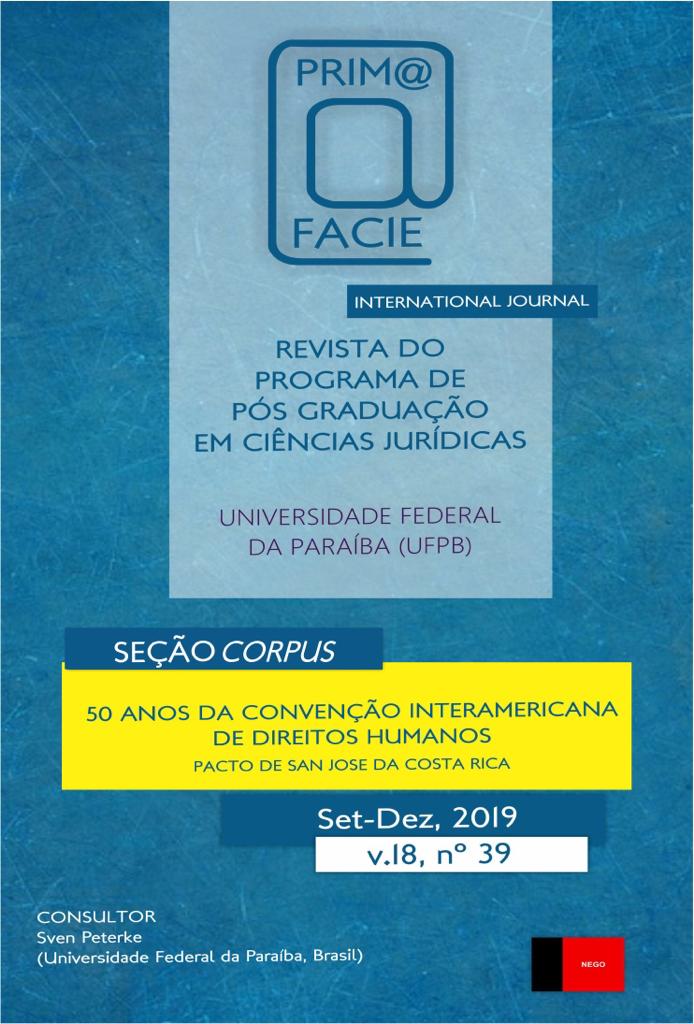LAGOS DEL CAMPO VS. PERU AND DOUBLE PARADIGMATIC ROLE IN THE EVOLUTION OF JUSTICIABILITY OF SOCIAL RIGHTS IN THE INTER-AMERICAN COURT OF HUMAN RIGHTS
DOI:
https://doi.org/10.22478/ufpb.1678-2593.2019v18n39.48760Abstract
The effectiveness of economic, social, and cultural rights over civil and political rights has long been neglected by states, downgrading them to mere programmatic rhetoric. That happened was especially true in countries of Latin American culture, whose history reveals the passage through long dictatorial and transactional periods that required democratic affirmation and consolidation. Taking this into account, this article aims to demonstrate how there has been a significant jurisprudential evolution regarding the content, matrix and normative density of such rights within the Inter-American Court of Human Rights following the judgment of the Lagos del Campo v. Peru case in 2017. Using the method deductive, theoretical foundation and historical and comparative approach with the european human rights system, it was demonstrated that this precedent represented a double paradigmatic character, inaugurating not only the justiciability of economics, social and cultural rights beyond the collective or supplementary bias (with the recognition of autonomy, protection of labor law, through new interpretation and normative scope of the concept of progressivity), as it contributing, from then on, to paving the Latin American ius commune and at a new moment in the inter-American system in the international Courts’dialogue.


